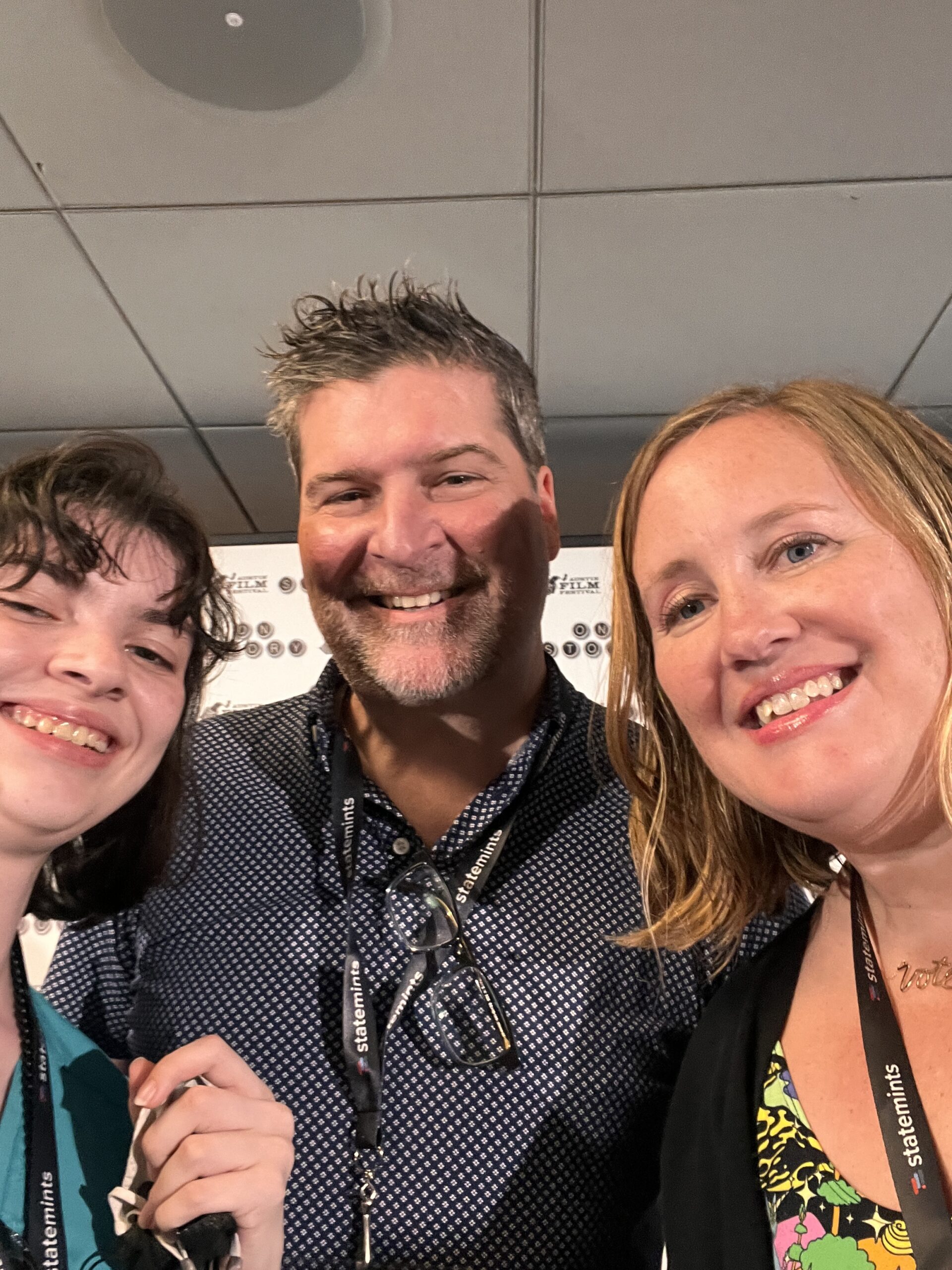Anxious to make it to the Austin Film Festival on time, I rushed downtown in my school-approved scrubs. The panel I selected to attend was barely an hour after my clinical rotation ended on Friday, October 25. I had no time to change my clothes and had to rush to the Omni’s Pennybacker Room, where it was being held! Having been up since 4:45 AM, it was a crazy schedule but it was worth it! I have been a fan of the series this panel regarded and I was excited for the opportunity to hear what went into its creation!

“Script to Screen: Bojack Horseman” featured two writers, Joe Lawson (pictured to the left in center) and Alison Flierl, (pictured to the left on the right), who worked on Bojack Horseman’s 2nd and 3rd seasons. AFF moderator Harrison Glaser asked the two writers questions about their processes and what it was like working on the show. Clips from episodes they each wrote were shown and both panelists were asked what it was like writing them, how they felt about them, etc. At the end of the panel, the audience was allowed to ask them a few questions, which they went through pretty quickly. Overall, it was an incredibly informative panel.
For me, the most interesting thing they mentioned was how the show runner, Raphael Bob-Waksberg, had a rule that the writers had to follow. The word “fuck” was only allowed to be used once per season. He reasoned that most television and streaming programs over use it, which causes it to lose all meaning. He wanted it to be more impactful in his own series. This is just one of the many times the two writers alluded to Raphael’s talent as a showrunner.
Lawson and Flierl discussed how Raphael had an incredibly clear vision for what he wanted his series to be. This emphasized to me that a show must have a clear vision for what it is supposed to be in order to be effective. They mentioned that the shows whose creators are more indecisive tend to experience less success.
Lawson and Flierl were asked about whether or not the designs of the characters influenced how they wrote them and they both immediately and simultaneously said “No.” They said it was after hearing the actor reading their lines during table reads that they knew exactly how to write for the character. This rings really true for me because when I don’t have an idea of how a character is going to sound in my own work, I end up just using my own voice. Whenever I do have an idea for a voice, suddenly the character sounds a lot more distinct and interesting.
Now here’s a little question. There’s a character in the show named Cameron Crow, who is, well, a crow. Can you guess who voiced him? (You have five seconds to respond) If you guessed Cameron Crow…. You would be …..wrong because he declined the invite and instead Kevin Bigley voiced the character. Now, that being said, the majority of the celebrities that they asked to be on the show actually said yes unless there were scheduling difficulties.
Some celebrities joined the show unexpectedly, for example Lisa Kudrow ended up voicing Wanda, who is one of the women Bojack dates. I remember Joe Lawson talking about his surprise when they got her to voice that particular character, and how stellar her performance was.
Others came in early in the show’s run, like Will Arnett and Aaron Paul. It is believed that their presences on the show were possible factors into its success.
At the end of the panel, audience members were allowed to ask the two writers some questions. I asked them “how do you balance comedy and drama without being tone deaf?” To which they responded: (and this is not an exact quote) it is a difficult balancing act. You have to consider different audience sensitivities, whether you should joke about something or not, whether certain people would mind if you joked about it or not, etc. I’ll admit I wish I worded the question a little differently, ie. When do you know it’s appropriate to time a joke after a serious moment? Nonetheless, I found their response to the question that came out of my mouth-very insightful.
– Madelyn, Filmmaker Mixer Correspondent

